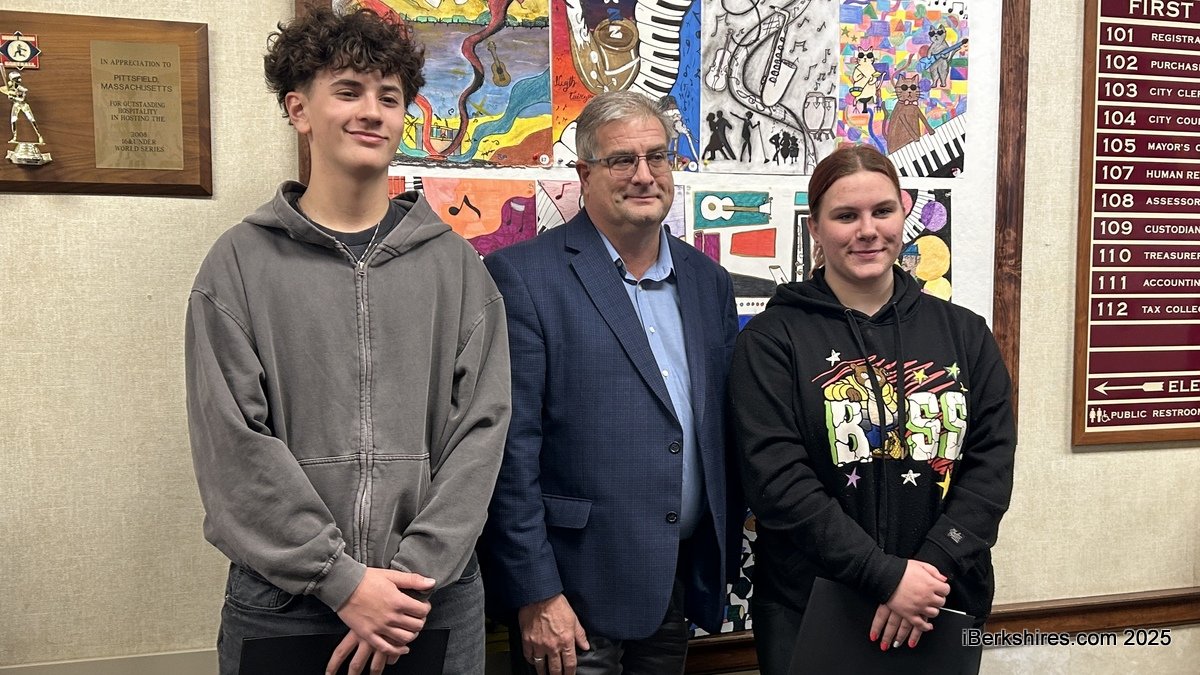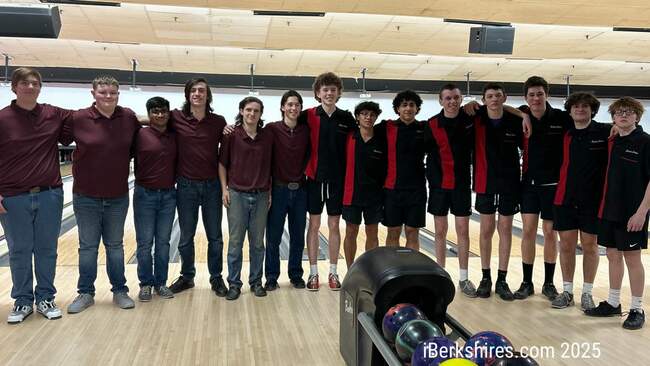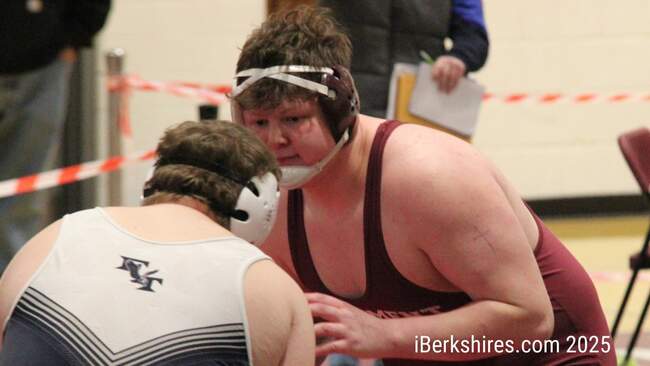
Holocaust Survivor Speaks at Clarksburg School
 Bill Clark of Fitchburg speaks at the annual Clarksburg School presentation on the Holocaust. |
CLARKSBURG, Mass. — Some of the names are well known — Schindler, Wallenberg — others not so much, such as Pritchard and Sugihara. But if you stopped to read their stories you realized they had one thing in common: They were saviors during Europe's darkest hours.
At least 5 million Jews died in the Holocaust, along with millions of gypsies, Russians, socialists, cripples and anyone else deemed undesirable by the Nazi regime. Hundreds if not thousands were saved by handful and trainful by luck, miracle or their fellow humans.
"Many of those who survived didn't know who did it or why," Holocaust survivor Bill Clark, 77, of Fitchburg told the gathering for the annual Holocaust presentation by the eighth-grade class at Clarksburg Elementary School on Thursday. It's something all Americans can speak to, he added. "We are all survivors."
Now in its fifth year, the Clarksburg curriculum offers an intensive look at different aspects of the Holocaust and includes a trip to the U.S. Holocaust Museum in Washington. This year, the children did research on the rescuers, survivors and victims of the Holocaust, lining the gymnasium with boards and dioramas presenting their research.
"It is truly amazing all the work you put in here," said Clark. "Had I known this, I would have brought other things [to show you]."
Clark, retired from Westboro State Hospital, spent part of his childhood in hiding when his native Hungary was occupied by Germany. Even before that, going to school had became a terrifying journey, with daily beatings by local ruffians. No one helped. "You see, it was funny to beat up a Jewish boy."
 This year's research focused on survivors, rescuers and victims. |
His savior was an elderly Presbyterian minister who hid 30 Jewish children in the orphanage behind his home. When the Germans came, they would hide in the silo under the animal feed. The minister had graduated from the University of Heidelberg and spoke fluent German, said Clark. "They trusted him."
An uncle and his grandmother were sent to Birkenau concentration camp, never to return. An aunt was beaten so badly she "died in agony" within months. Not only Jews but anyone related to them were rounded up in his village. His parents were put to work, his father digging ditches on the Russian front for the Hungarian forces.
Amazingly, both his parents survived — his father jumping with others under a hail of bullets from a train full of soldiers fleeing the front.
"The Russians, those were the ones who liberated the camps and killed the Nazi beasts," said Clark, who would spend part of his two years in the Hungarian army sitting in some of those very tanks that had rolled on Berlin. In 1956, he would emigrate to the United States during the Hungarian Revolution.
Clark was only 9 when he went into hiding. He's part of a rapidly disappearing group of Holocaust survivors. "They are a rare and genuine and precious commodity today," said Rabbi Robert Sternberg, a consultant for the program and leader of the synagogue Clark attends.
Fourteen-year-old Carrie Pierce sought out a survivor to interview after reading the story of Alicia Appleman-Jurman, who escaped death numerous times as a child in Poland.
 Stones for Oskar Schindler. |
"I wanted to know if she was still alive," said Carrie, who found a number and contacted her. She was, indeed, still alive at 80, living in California and going to schools and colleges to speak about her experiences.
"She was the only one to survive in her family. She almost got killed so many times it's almost not realistic," said Carrie. "She was very nice. She said I was good in my heart. She likes to speak to children, she said, because she loves how they take every bit into their hearts."
Not everyone is taking it into their hearts. Clark expressed his concern over the rising usage of Nazi symbols, particularly in the South. "Who are they coming for? Yankees? Catholics? Muslims? ... It's not really funny."
Teacher Michael Little said the course is designed to help the children face prejudice and bigotry. "It will help them understand their choices have profound consequences in the world."
 |
 Carrie Pierce's interview with Alicia Appleman-Jurman was transcribed as part of her research project. |
Tags: Holocaust,
















